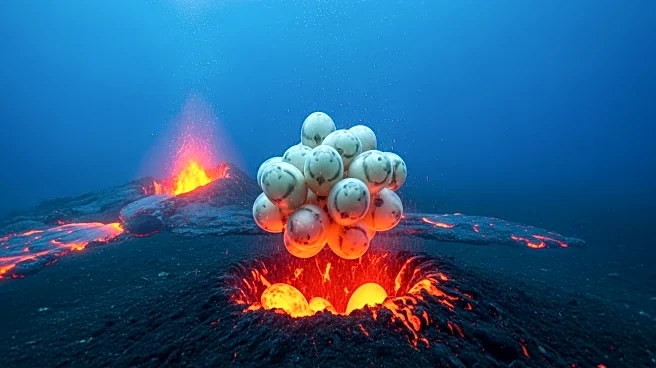What's Happening?
An underwater volcano near Vancouver Island has uncovered millions of giant skate egg cases, transforming the seamount into a bustling nursery. The geothermal heat from the Tuzo Wilson Seamount Complex accelerates the development of skate embryos, which typically take years to hatch. This discovery includes over two million egg cases from Pacific white skates, highlighting the unique interplay between marine biology and geothermal activity. Researchers have documented live egg-laying events, marking the highest densities recorded for skate reproduction.
Why It's Important?
The discovery underscores the critical role of geothermal activity in marine ecosystems, offering insights into how environmental factors influence reproductive strategies in deep-sea species. Protecting these delicate seamount ecosystems is vital, as they are vulnerable to environmental stressors like climate change and deep-sea trawling. The findings contribute to our understanding of biodiversity hotspots and the need for conservation efforts to safeguard these unique marine habitats.
What's Next?
Efforts to protect the volcanic nursery will likely intensify, with researchers advocating for conservation measures to preserve the seamount's fragile ecosystem. Further studies may explore the impact of geothermal heat on other marine species and the potential for similar nurseries in other volcanic regions. Collaboration between marine biologists and geologists will be crucial in developing strategies to mitigate human impact on these ecosystems.
Beyond the Headlines
The interplay between geology and biology in this discovery highlights the complexity of marine ecosystems and the importance of interdisciplinary research. The volcanic nursery serves as a natural laboratory for studying adaptation and survival in extreme environments, offering potential insights into evolutionary processes. The findings may influence future marine conservation policies and inspire innovative approaches to protecting underwater ecosystems.









